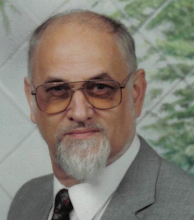 I find it refreshing to discover a teacher that thinks the same way as I do about ePortfolios. Certainly the brief statements in the blog of Tamara Malloff ring true with my own feelings.
I find it refreshing to discover a teacher that thinks the same way as I do about ePortfolios. Certainly the brief statements in the blog of Tamara Malloff ring true with my own feelings.However, I must also focus on an extract from one of her previous posts which looks towards the future:
- Portfolio or Project-based learning. While some courses will undergo initial disaggregation, the essential trend in education is toward a holistic, self-directed experience.
- Eportfolios will become the basis for learning design from a younger age, with a teacher-mentor and/or community mentor acting as guides and co-facilitators. Parents will be involved in the educational design of their children in a more authentic way, as they also have access to their child’s learning portfolio online. There will be less emphasis on grades, and more of an emphasis on holistic learning outcomes that students have to meet in terms of evidence and artefacts.
- Movement toward project-based learning in brick and mortar schools. Educators will work together to synthesis learning outcomes to plan a holistic, problem or project-based learning experience based on learner interests. The project would be co-designed with the learners, but with educators guiding the process. There will be community access and involvement, making the learning experience authentic.
- IDS (Independent Directed Studies) becoming more predominant initially as learners look to designing their own learning experience and schools look to credit their learning experience. However, IDS may potentialy fall off as an option, making way for holistic portfolio learning experiences based on learning outcomes, not course credits. This may include BAA (localy developed) courses as well. This will require the education system to rethink assessment, grading, and reporting.




1 comment:
Hello Ray!
Thank you for your comment on my blog post "EPortfolios: Bridging Assessment with Student Enfranchisement." I am quite humbled, while at the same time I, too, am thrilled to find a like-minded individual who see eportfolios as living artefacts beyond the institutional realm. As you say, learning should be lifelong and lifewide. Well said! I shall certainly remember that Have you had any experience with Mahara, an open source eportfolio program? We are currently using Web 2.0 tools, but are looking into a slightly more formalized platform, though I wouldn't narrow the scope of eportfolios in this respect, but ammend what is currently available. Perhaps "coherence" is the right word. Thank you again, Ray--it is a pleasure "meeting you." I am sure the dialogue will continue...
Post a Comment